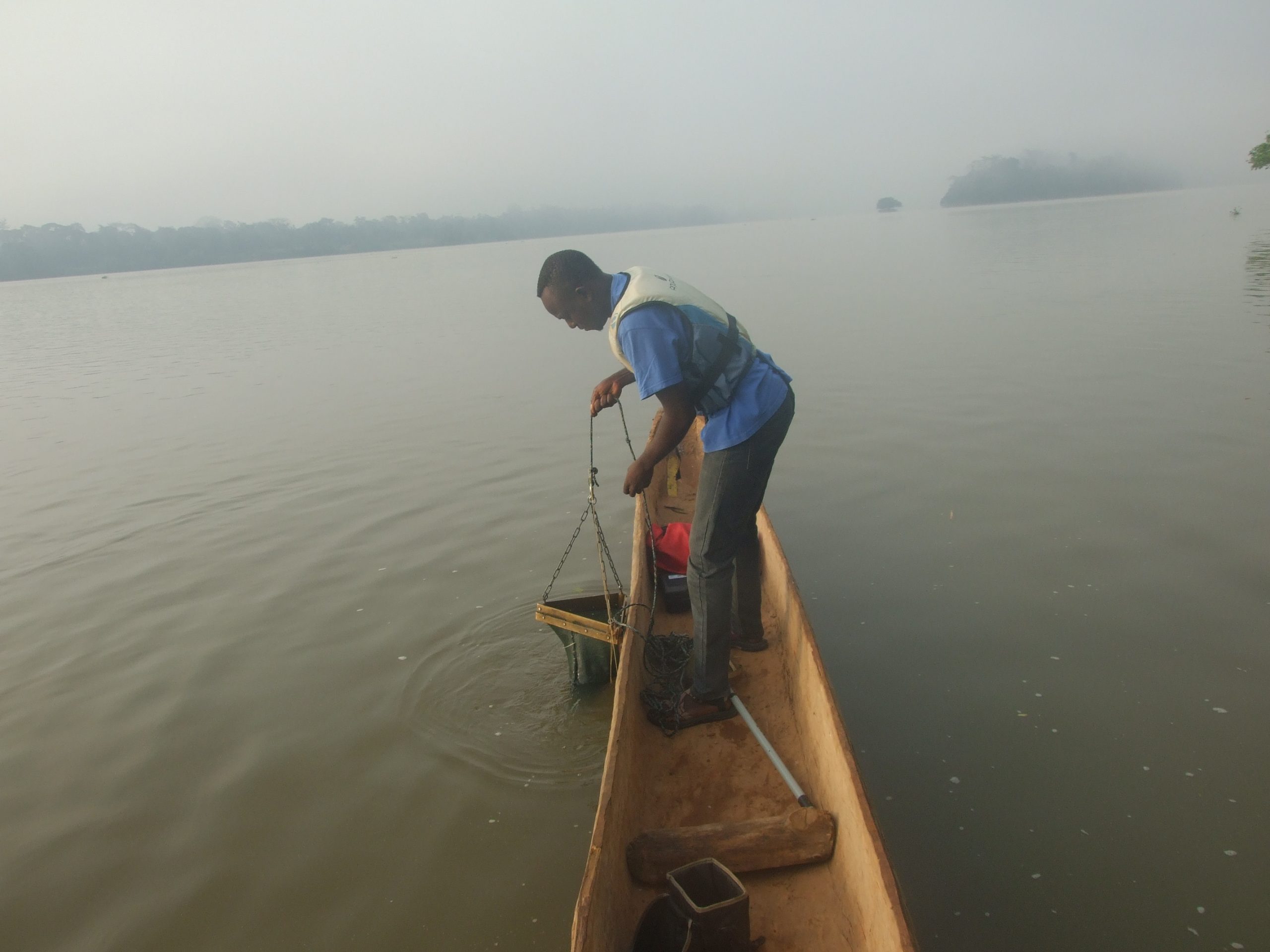The Congo River winds over thousands of miles through the Democratic Republic of Congo. The river is Africa’s largest, and a known biodiversity hotspot, home to species found nowhere else in the world, including molluscs like mussels and snails. These species play important ecological roles and are a source of food and income for communities living along the river. Yet they remain little studied; most mollusc records are decades old, restricted to small geographic slivers. That changed when Oscar Wembo Ndeo traveled to parts of the Congo river that had not been researched in 100 years or more.
Ndeo, a 2016 CARN awardee, performed extensive fieldwork to assess mollusc biodiversity in the central Congo River, with a particular focus on gastropods (also known as snails). His research was designed to estimate habitat status and assess how populations are affected by environmental variables, including rates of pollution. To better understand human pressures on gastropods, Ndeo also interviewed local residents, near the central Democratic Republic of Congo city of Kisangani, about their consumption and harvesting of particular gastropod species.
Ndeo sampled 1,567 mollusc specimens from 14 different species. His study revealed a surprising scarcity of molluscs in the river Aruwimi, a tributary of the Congo, and identified human pressures in the gastropod genus Potadoma, some species of which are listed as threatened or vulnerable by the IUCN.
“This grant helped me to collect basic data of an endemic and endangered genus,” says Ndeo, who is a student at Mbarara University in the DRC. “There was no new data that could confirm the existence before. CARN helped me to accomplish my goal of promoting neglected molluscs, which are so important.”
Ndeo is also a researcher at the University of Kisangani’s Hydrobiological Institute. His career goal is to become a leading scientist and academic teacher. “This position will give me a way to accomplish my strong interest on freshwater conservation, especially freshwater molluscs.”
